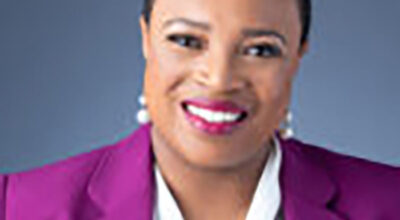Two challenge chairman for school board seat
Published 12:00 am Wednesday, October 1, 2014
Richard Miller’s seat is up for election on the Rowan-Salisbury Board of Education, and Phil Hardin and W.F. Owens are challenging the board’s chairman.
Seat one represents the district’s northern schools, including North Rowan elementary, middle and high schools, Hanford-Dole Elementary and Henderson Independent High School.
Miller, a former teacher and education advocate, has completed one term on the school board. Hardin, also a retired educator, served as the Rowan-Salisbury School System’s technology director for 15 years. Owens is retired as well, and has worked many jobs in a variety of industries.
If elected, Hardin hopes to reestablish the board’s focus on educating students, supporting teachers and making sure that students have safe, well-maintained and well-equipped classroom environments.
Owens wants to improve schools and the education system, make sure high school graduates are career-ready and cut funding to underperforming schools.
Miller said his goal, if reelected, is to do “everything we can to improve our students’ literacy rates” and to make sure there are “well prepared educators in the classroom to help students reach their full potential.”
Owens said he’s the best choice “for the county,” adding that he’s concerned that tax money going toward the school system could hurt those who are already struggling financially.
He wants to “preserve what they have so they aren’t taxed out of their homes.”
Miller believes his experience and leadership on the Board of Education speak to why people should vote for him.
He says during his tenure, he’s worked hard to address “literacy, performance of the staff and capital projects.
If reelected, Miller said he plans to “continue to move the system forward,” which is “what the system needs.”
“Our students, teachers and classrooms are my priority for running for the school board,” Hardin said when asked why people should vote for him.
Hardin added that his 30 years of experience as an educator, understanding of educational financing and resources for grant funding also make him a good fit.
The district’s new strategic plan has established literacy as its top priority.
“When I first ran, I said that one of the criteria that had to be met was excellence,” Miller said. “Establishing literacy as a focus does that.”
He added he supports that focus through his position on the board by making sure staff management and policies align with the district’s literacy goal.
Hardin said he has personally seen how illiteracy impacts student success in the classroom.
“I understand curriculum. I understand how to make changes,” he said. “I can make some of the first-hand classroom experience that I am well aware of more widely understood by board members.”
Having fully-staffed classrooms and schools is vital, Hardin added. “By cutting positions, we’re hurting our students.”
Family involvement is key to Owens’ literacy plan.
“I think that we need to try to get the parents, if possible, in volunteering with the school system,” he said.
“There’s a little dirty secret, if a child is held back for two grades, they’re not held back a third year. That needs to stop. It’s a drag on the good teachers,” Owens added.
County commissioners and the school board approved $40.5 million for the district’s top three capital needs in April. The three projects they identified as top priorities are a consolidated central office, renovations to Knox Middle School and a consolidated elementary school in the western part of the county.
The central office, which has been a point of contention in the community over the past 25 or so years, was allotted $6.5 million and is currently slated to be built in the 500-block of N. Main Street in downtown Salisbury.
Hardin spent roughly 15 years working out of the district’s administrative office in East Spencer.
“I’m well aware of the need for a centralized school system office,” he said.
Hardin added that a centralized office would add to employee ease and financial benefits, but he isn’t necessarily sold on the board’s current plan.
“The one thing I don’t want to do is build a central office building that doesn’t have a capacity for our future,” he said.
Hardin wants to examine “the data and details” about cost, the amount of property and the district’s needs before making any firm decisions.
Owens, on the other hand, has a very different take on the central office.
“No central office. Period,” he said. “There are over 160 administrative personnel. They need to be dispensed with.”
Owens said taxpayers contribute to education “involuntarily” through taxes.
Owens suggested cutting costs and taxes by hiring beginning teachers at much lower salaries than those currently serving in administrative and leadership positions, and to use them alternatively as substitute teachers as needed.
Owens said Superintendent Dr. Lynn Moody’s salary is too high.
“In fact, she needs to be replaced,” he said.
Miller has been a key player in moving the central office project along to where it is today.
He said it’s time to “put this project to bed so we have time for literacy and for other capital projects.”
“Appropriate facilities are, in fact, a component of moving literacy forward,” Miller added.




